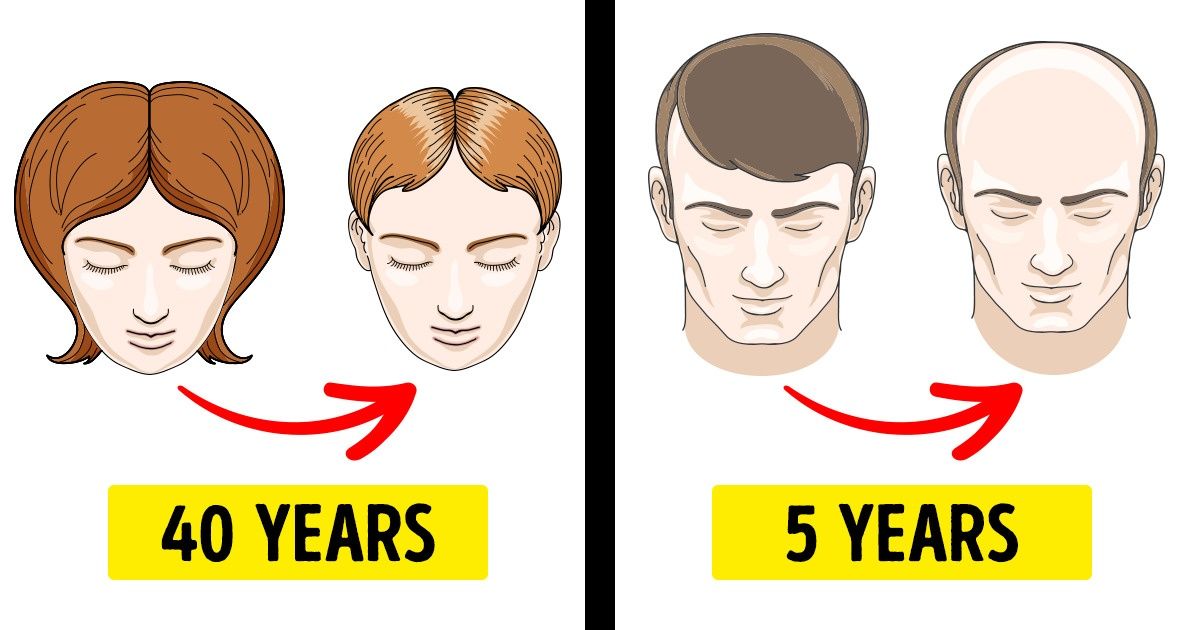Weight loss is a topic that often evokes feelings of frustration and self-blame. However, emerging research in psychology and health suggests that many factors influencing our body weight are deeply rooted in our emotions and behaviors. In this article, we explore 5 psychological reasons why it’s not your fault if you can’t lose weight. We’ll delve into the hidden factors that may be sabotaging your weight loss efforts, from unexpected benefits of being overweight to the complex interplay of self-esteem and social attention.
Understanding these psychological drivers is crucial for anyone who has ever felt that their body weight is solely a result of personal choice. By shedding light on these underlying factors, we hope to empower you with knowledge and practical insights for a healthier, more balanced approach to weight management.
Psychological Reasons Not Losing Weight
How Being Overweight Can Sometimes Offer Unexpected Benefits

At first glance, it might seem counterintuitive to suggest that being overweight could offer any benefits. However, several studies indicate that excess weight can sometimes provide unexpected advantages in specific situations. For instance, some research suggests that in older adults, a slightly higher body mass index (BMI) may be associated with increased survival rates during illness. This phenomenon, sometimes referred to as the “obesity paradox,” challenges the simplistic view that lower body weight is always better.
- Survival Benefits in Illness: Research published in the Journal of the American Medical Association has discussed how, in some cases, extra body weight might offer a protective cushion during severe illnesses. This does not mean that obesity is universally healthy, but it does highlight the complexity of weight-related health outcomes.
- Social and Cultural Factors: In certain cultures, a fuller figure is seen as a symbol of prosperity and health. This cultural acceptance can contribute to a positive self-image, even in the face of societal pressures to be thin.
- Stress Buffering: Some psychological theories suggest that carrying extra weight might serve as a buffer against stress. The body may respond to chronic stress by storing fat, which could be seen as an adaptive, if not ideal, survival strategy.
For further reading on the obesity paradox and its implications, check out this Healthline article on the obesity paradox.
Understanding Comfort and Habit: The Role of Laziness in Weight Management
It’s common to hear phrases like “I’m just too lazy to exercise,” but the reality is more nuanced. The so-called “laziness” can actually be a byproduct of our brain’s natural drive to conserve energy. Over millions of years, humans evolved to avoid unnecessary physical exertion—a trait that, in modern society, can inadvertently contribute to weight gain.
- Energy Conservation Mechanism: Our bodies are hardwired to conserve energy. When faced with stress or fatigue, the brain may trigger behaviors that reduce energy expenditure, which can manifest as what we label “laziness.” This isn’t a moral failing; it’s a survival mechanism.
- Habitual Comfort: When we establish routines that include prolonged sitting, minimal movement, or repetitive behaviors, our bodies adapt to these patterns. Changing such ingrained habits is challenging and often requires a conscious effort to disrupt the status quo.
- Psychological Comfort Zones: For many, maintaining a certain weight can become a subconscious comfort zone. The resistance to change—even if that change is healthier—stems from a deep-seated fear of the unknown and the discomfort of stepping out of familiar patterns.
To explore more about the psychology of habit formation and energy conservation, visit Psychology Today’s insights on habits.
Exploring the Social Dynamics: Attracting Love, Attention, and Acceptance Through Weight

Our bodies are not just biological entities; they are also social symbols. In a world where media and societal expectations constantly bombard us with ideals of beauty, weight can become a form of social currency. Interestingly, some individuals may unconsciously use their weight as a way to garner attention, love, and acceptance.
- The Need for Validation: Weight gain can sometimes serve as a subconscious method to receive care and attention from others. Friends and family may offer concern and support when someone is overweight, reinforcing behaviors that maintain that status.
- Cultural Beauty Standards: In many cultures, body size is intertwined with perceptions of beauty and success. For some, maintaining a fuller figure may align with cultural norms and even be seen as desirable.
- Attention and Empathy: Studies have shown that people who are overweight may receive more empathy and assistance in certain social contexts. This dynamic can create a cycle where weight gain is unintentionally reinforced through positive social feedback.
For additional perspectives on the social aspects of body image and weight, refer to The Conversation’s article on body image and culture.
Coping Mechanisms: How Weight Gain Can Serve as an Escape from Negative Emotions

Emotional eating is one of the most well-documented phenomena in psychological research. When life becomes overwhelming, many people turn to food for comfort. This isn’t about a lack of willpower—it’s a coping mechanism designed to alleviate emotional distress.
- Emotional Self-Soothing: Eating can trigger the release of endorphins, which are natural painkillers. For some, the temporary relief provided by food is a way to escape from unwanted thoughts and emotions.
- Stress and Cortisol: Chronic stress increases levels of cortisol, a hormone that can promote fat storage, particularly around the abdomen. This biological response to stress can create a vicious cycle where emotional distress leads to weight gain, which in turn can lead to more stress.
- Avoidance of Painful Emotions: When faced with unresolved issues such as grief, anxiety, or depression, some individuals may find that overeating provides a temporary distraction from their problems. This behavior, while not a solution, is a way for the brain to momentarily avoid emotional pain.
For more on the link between stress, cortisol, and weight gain, check out this article from the Mayo Clinic on stress management.
Avoiding Deeper Issues: The Link Between Weight Gain and Unresolved Self-Esteem Challenges

Weight is often a visible manifestation of our inner self-esteem issues. While many people focus solely on physical aspects, there is a deep psychological component to weight gain that is tied to how we perceive ourselves.
- Self-Esteem and Body Image: Negative self-image can lead to behaviors that reinforce weight gain. When individuals struggle with low self-worth, they might not prioritize self-care, including healthy eating and regular exercise.
- Avoidance of Personal Growth: Sometimes, focusing on weight issues can serve as a distraction from addressing deeper personal challenges. Instead of tackling emotional wounds or self-esteem problems head-on, some individuals may find it easier to remain in a cycle of overeating and inactivity.
- Fear of Change: The prospect of losing weight and transforming one’s body can be daunting, especially if it means confronting underlying emotional issues. The status quo, as challenging as it may be, feels safer than the uncertainty of change.
To gain further insight into the connection between self-esteem and weight, visit Psych Central’s discussion on self-esteem and body image.
Bringing It All Together: Embracing a Holistic Approach to Weight Management
Understanding that weight struggles are influenced by psychological factors can be both liberating and empowering. Recognizing that it’s not entirely your fault if you can’t lose weight opens the door to more compassionate self-care. Here are some steps you can take to address these hidden factors:
- Seek Professional Support: Therapy or counseling can provide valuable insights into your emotional relationship with food and your body. Cognitive-behavioral therapy (CBT) has proven effective in addressing emotional eating and self-esteem issues.
- Practice Mindfulness: Mindfulness techniques can help you become more aware of your eating habits and emotional triggers. Practices such as meditation, yoga, or even mindful walking can improve your relationship with food and yourself.
- Focus on Overall Health: Instead of fixating solely on weight loss, concentrate on building a healthy lifestyle. Incorporate regular physical activity, balanced nutrition, and adequate sleep into your routine. Small, consistent changes often lead to sustainable results.
- Build a Support Network: Surround yourself with friends, family, or support groups that encourage positive behaviors. Sharing your struggles and successes with others who understand can provide both motivation and accountability.
For more resources on holistic health and weight management, consider exploring Healthline’s comprehensive weight loss guide.
Conclusion: Embrace the Journey to Self-Acceptance and Health
Weight loss is a multifaceted issue, influenced by everything from biological factors to deep-seated emotional challenges. The 5 psychological reasons discussed in this article highlight that it’s not simply a matter of willpower or laziness. Instead, a complex interplay of benefits, emotional coping mechanisms, social dynamics, and unresolved self-esteem issues can all contribute to the struggle.
By understanding these underlying factors, you can approach your weight management journey with more compassion and clarity. Embrace the fact that these challenges are part of the human experience, and that addressing them holistically can lead to not only a healthier body but also a more fulfilled and balanced life.
Remember, lasting change starts with self-awareness and the willingness to seek help when needed. Whether it’s through professional guidance, mindfulness practices, or building a supportive network, each step you take is a step toward a better understanding of yourself—and ultimately, a healthier you.
For further reading and expert advice on the psychological aspects of weight management, explore trusted sources like Psychology Today, Mayo Clinic, and Healthline.
Take your time on this journey, celebrate every small victory, and remember that your worth is not defined by a number on a scale. Embrace a holistic approach to health and self-care, and let the insights shared here empower you to create lasting, positive change in your life.
Preview photo credit Depositphotos









